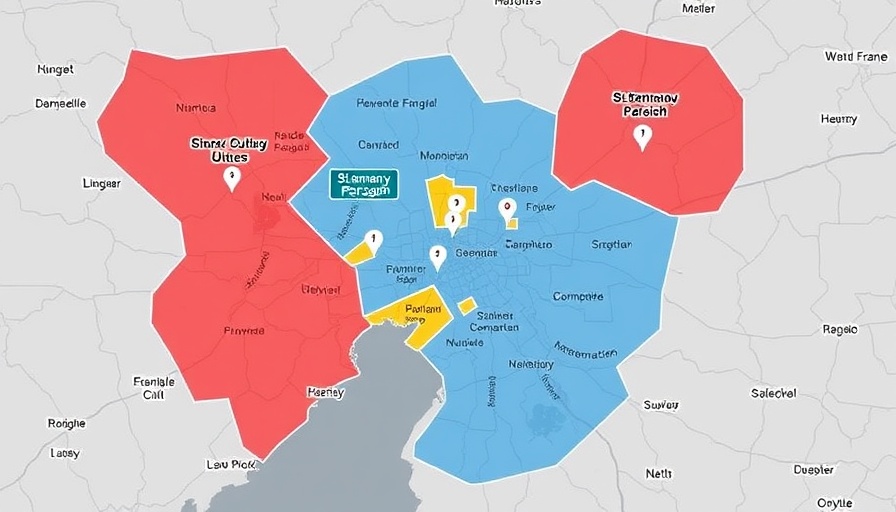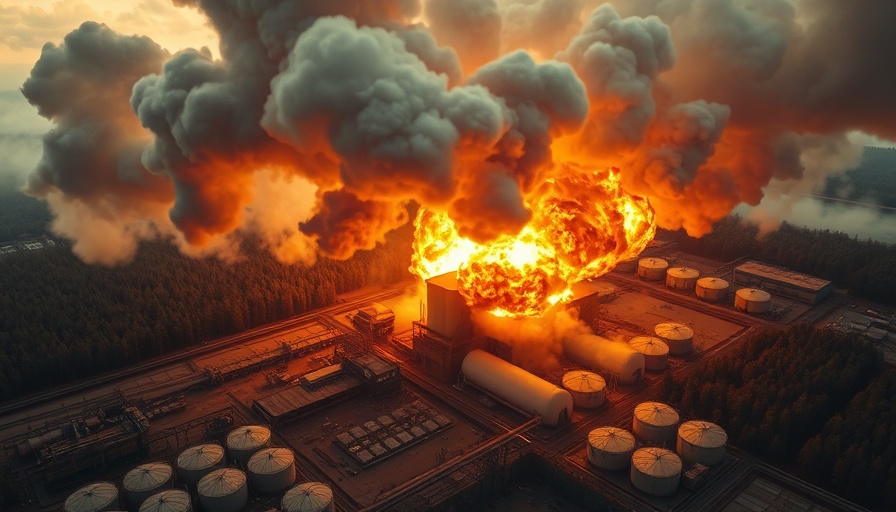
Trump's 250th Anniversary Celebration: A Mixed Bag of Patriotism and Politics
On July 3, 2025, President Donald Trump launched a yearlong celebration for America's 250th anniversary at the Iowa State Fairgrounds in Des Moines. This event, designed to honor a crucial milestone in U.S. history, quickly morphed into a stage for the president to showcase his agenda and rally his base. Amidst a sweltering mid-summer day, several thousand supporters eagerly waited to hear from the president, suggesting that the sentiments surrounding Trump remain deeply polarized yet fervent.
A Community Festival Turned Political Rally
Traditionally, celebrations like these aim to bring citizens together, transcending political divides to acknowledge shared heritage and national pride. However, Trump’s rhetoric during the event emphasized a personalized view of patriotism, claiming that opposition to his policies equated to a “hate” for the country. His supporters cheered as he boasted about recent tax cuts passed just hours before, marking it as a significant victory for his administration.
While many Americans might see national events as opportunities to unite, Trump's comments demonstrated his strategy of framing political loyalty within the context of patriotism, suggesting that dissenters do not share the same love for America. At a time when the nation is grappling with divisive issues, this approach may impact the way celebrations like the 250th anniversary are experienced by various groups across the country.
What’s at Stake for the Future?
The yearlong festivities are not just commemorative; they are also a reflection of the current political atmosphere. There is an interesting juxtaposition between the idea of celebrating national unity and the hardline stances taken by political leaders. As plans roll out for a massive event on the National Mall featuring exhibits from all 50 states next summer, organizers hope to create an environment where diverse perspectives can coexist. Yet, Trump's narrative raises questions about whether discussions of America’s past can truly bridge contemporary divides.
Locals Reflect on the Celebration
In Louisiana, where residents have seen firsthand how national policies affect local economies and communities, the reception of such events can vary widely. For those 55 and older, many feel a strong connection to the history defined by celebrations like this one. Yet, the prevailing sentiment may also carry some skepticism towards the political undertones they bring.
If there is indeed a push to strengthen American bonds, it begins with addressing the very concerns that such celebrations may overlook. Issues such as healthcare reforms, food assistance programs, and educational funding are particularly vital for older citizens who may rely on these services. As festivities unfold over the coming months, Louisiana's residents, like many others, will be watching closely to see if their voices are acknowledged alongside the national narrative.
The Nationwide View
While Trump’s presidency has elicited cheers from a large segment of the population, others are left feeling excluded from the narrative he constructs. The ongoing dialogue surrounding patriotism often does not account for the nuanced perspectives of Americans in different regions and social standings. The excitement from Trump’s supporters contrasts sharply against those who believe that America is as much about critique and progress as it is about celebration.
Concluding Thoughts
The pathway towards unifying a polarized United States is undoubtedly complex. As the country gears up for a hefty year of national pride, organizations and government leaders must be attuned to the diverse experiences that comprise the American fabric. Moving forward from this anniversary celebration, awareness and recognition of all Americans' contributions and struggles will be essential.
In a democracy, it is crucial that celebrations not only honor victories but also address the challenges that ordinary citizens face every day. Ideally, this celebration becomes more than just another political rally—it should be an opportunity for genuine engagement and dialogue that is necessary for healing divisions.
 Add Row
Add Row  Add
Add 



Write A Comment